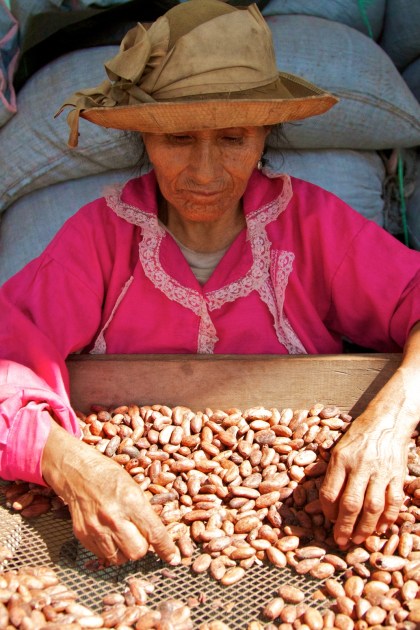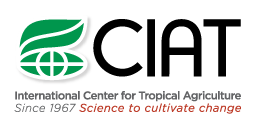Spreading climate smartness in Latin America
Colombia has embraced climate-smart agriculture (CSA) and, in 2013, started the implementation of a novel effort to encourage the country’s agricultural sector to improve its capacity to respond to climatic changes and thus reduce losses and increase productivity and competitiveness. The idea was to take advantage of available information, tools, and technologies, and to sustainably use natural resources more efficiently.
A formal agreement between the Ministry of Agriculture and Rural Development (MADR, its Spanish acronym) and CIAT brought together for the first time a wide range of entities including the national government, academia, research centers, NGOs, and agricultural associations involved in the production chains for maize, beans, rice, potato, fruits, and oil palm.
Forecasts that prevent losses
The effectiveness of agroclimatic forecasts for decision-making – a major output of this agreement – was demonstrated when the parties to the agreement, working collaboratively with the National Federation of Rice Growers (FEDEARROZ), prevented 170 rice farmers in Montería, Córdoba, from suffering significant economic losses during the intense summer of 2014. Because the farmers had followed a recommendation to change the planting date, they saved 1,800 hectares of rice from being destroyed. This strategic decision was the result of an approach that received an award in the 2014 United Nations Climate Summit, held in New York.

our #BigData Climate Challenge" 2014 winners: @globalforests & @CIAT_ https://t.co/HdCAwS1ukj #datarevolution for #climateaction #COP21data
— Global Pulse (@UNGlobalPulse) December 4, 2015
Extending to Peru and Honduras
 After more than 20 years of collaboration between Peru and CIAT, climate-smart agriculture arrived in Peru in 2014 with the publication of a CSA country profile financed by the World Bank, together with profiles of eight other Latin American countries. The effort provided a snapshot of current conditions and farming practices, and weighed up promising options that governments and financial institutions could adopt.
After more than 20 years of collaboration between Peru and CIAT, climate-smart agriculture arrived in Peru in 2014 with the publication of a CSA country profile financed by the World Bank, together with profiles of eight other Latin American countries. The effort provided a snapshot of current conditions and farming practices, and weighed up promising options that governments and financial institutions could adopt.
As a result, Rainforest Alliance, Root Capital, Sustainable Food Lab, CCAFS, and CIAT met in 2015 to promote processes to enhance the resilience of the coffee and cacao value chains in Peru, Ghana, and Nicaragua. For Peru, the challenge is two-pronged: to identify adequate CSA practices for coffee and cacao production systems to confront changing climate; and to determine where and when specific practices should be promoted to achieve the best resilience under different local conditions.
Impressed by the Colombian agreement’s results at the end of 2015, the Honduran Secretariat of Agriculture and Livestock (SAG, its Spanish acronym) also signed a collaboration agreement with CIAT with the aim of climate proofing the Honduran agricultural sector.


